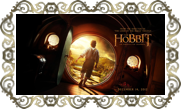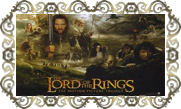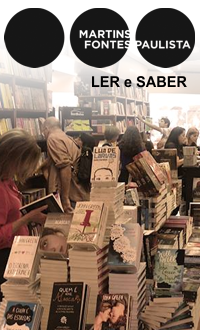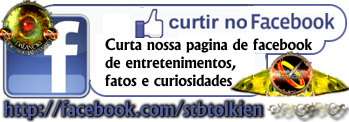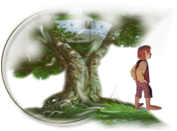

Have you already read The Fall of Arthur, Tolkien's latest book? (09.08.13 by Pieter Collier) - Comments
| Published in May, The Fall of Arthur has been described by the Mail on Sunday as "one of Tolkien's finest works" and the New York Times as a "highly compelling retelling of perhaps the most famous and familiar legend in the British tradition", it features "some of the most dazzling alliterative verse of Tolkien's career". The poem is accompanied by three scholarly essays by Christopher Tolkien, one of which draws tantalizing links between The Fall of Arthur and The Silmarillion. This new Tolkien book is available in both hardback and deluxe slipcased edition for collectors. This is the first new book by J.R.R. Tolkien since the internationally bestselling The Legend of Sigurd and Gudrún in 2009. And The Fall of Arthur is the world first publication of a previously unknown work by J.R.R. Tolkien, which tells the extraordinary story of the final days of England’s legendary hero, King Arthur. Somehow I have the feeling the publication came and went, without the well-deserved attention the book should have got. My question is, have you already read The Fall of Arthur and if so what did you think of the book? The Fall of Arthur may be found to have much to recommend it by those who make the effort to actually read it. |
The Fall of Arthur, the only venture by J.R.R. Tolkien into the legends of Arthur King of Britain, may well be regarded as his finest and most skilful achievement in the use of the Old English alliterative metre, in which he brought to his transforming perceptions of the old narratives a pervasive sense of the grave and fateful nature of all that is told: of Arthur’s expedition overseas into distant heathen lands, of Guinevere’s flight from Camelot, of the great sea-battle on Arthur’s return to Britain, in the portrait of the traitor Mordred, in the tormented doubts of Lancelot in his French castle.
Unhappily, The Fall of Arthur was one of several long narrative poems that he abandoned in that period. In this case he evidently began it in the earlier nineteen-thirties, and it was sufficiently advanced for him to send it to a very perceptive friend who read it with great enthusiasm at the end of 1934 and urgently pressed him ‘You simply must finish it!’ But in vain: he abandoned it, at some date unknown, though there is some evidence that it may have been in 1937, the year of the publication of The Hobbit and the first stirrings of The Lord of the Rings.
Years later, in a letter of 1955, he said that ‘he hoped to finish a long poem on The Fall of Arthur’; but that day never came.
Associated with the text of the poem, however, are many manuscript pages: a great quantity of drafting and experimentation in verse, in which the strange evolution of the poem’s structure is revealed, together with narrative synopses and very significant if tantalising notes. In these latter can be discerned clear if mysterious associations of the Arthurian conclusion with The Silmarillion, and the bitter ending of the love of Lancelot and Guinevere, which was never written.
The Fall of Arthur Hardcover Edition
| Times Literary Supplement wrote about the book: “This is the most unexpected of Tolkien’s many posthumous publications; his son’s ‘Commentary’ is a model of informed accessibility; the poems stand comparison with their Eddic models, and there is little poetry in the world like those” And Telegraph said “The compact verse form is ideally suited to describing impact… elsewhere it achieves a stark beauty” The Fall of Arthur, begun by J.R.R. Tolkien just a few years before The Hobbit, was inspired by tales of the iconic British hero contained within the work of Geoffrey of Monmouth, Thomas Malory and other English poets, but depicts drama and adventure in language only Tolkien could have written. It comprises a work of narrative verse telling of the last days of the King, and has been edited by Christopher Tolkien, who also provides detailed commentary and notes. To my opinion the poem is excellent, however sadly rather short and left unfinished. On the other hand it shows us once again how brilliant J.R.R. Tolkien was and when read out loud this poem can really take you along and bring you to the old halls where verses like these would have been told. |
| Title: The Fall of ArthurAuthor: J. R. R. TolkienEditor: Christopher Tolkien Publisher: HarperCollinsPublication Date: 23 May 2013Type: hardcover, 240 pagesISBN-10: 0007489943ISBN-13: 978-0007489947 |
The Fall of Arthur Deluxe Edition
| Deluxe collector’s edition featuring the first edition text and containing a facsimile page of Tolkien’s original manuscript. The book is quarterbound with a gold motif stamped on the front board and is presented in a matching slipcase. This edition nicely matches the other deluxe editions in the same style and sits nicely next to The Hobbit, The Lord of the Rings, The Silmarillion, The Children of Hurin, Tales from the Perilous Realms and Children of Hurin. However somehow I believe this book is not going to end up being a major best seller like the previous books and has been published for a much smaller and select audience. It is my hope that many will give the book a chance and read it. The poem is just spectacular and the essays by Christopher Tolkien are very informative. I have to admit that sometimes the essays are hard to read and there is probably no other author who manages to write longer sentences, which does not improve on reading them. But clearly Christopher Tolkien feels like a fish in the water and shows clear mastery of the subject. The publishers don't hide the fact that the poem is way too short and obviously unfinished but once you finish the whole book (I admit I also needed some re-reading) and let it all sink in you understand that this is indeed one of Tolkien's best works and a must read. So will you pick up a copy and read it? If you already did, what did you find of it? |
| Title: The Fall of ArthurAuthor: J. R. R. TolkienEditor: Christopher Tolkien Publisher: HarperCollinsPublication Date: 23 May 2013Type: deluxe edition, 240 pagesISBN-10: 0007489897 ISBN-13: 978-0007489893 |
Spread the news about this J.R.R. Tolkien article:
